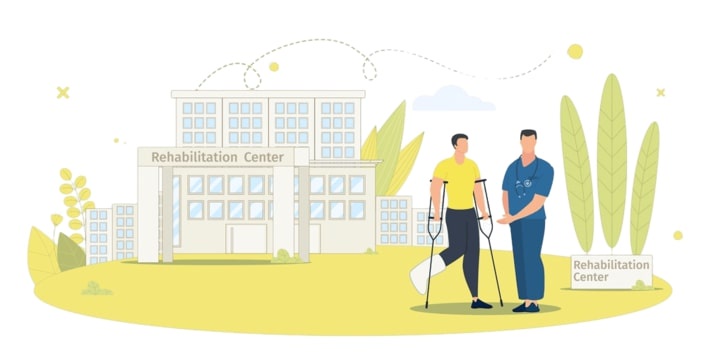Drugs are a complicated and sensitive topic overall world over. We have to devise proper treatment strategies for ridding our medical
systems with too much patient issues over drug addiction treatment related troubles of patients around the world. Friends may get together and
mix drugs and sex or others might mix drugs with alcohol etc. To gain insight to curiosities about a particular obsession such as spirituality
and other creative pursuits. If this goes out of balance, a patient may lose his or her life because these drugs when taken in bad capacity
can be harmful to the main living systems within the patients bodies.
Once addicted to potentially harmful and killer drugs such as coaine or heroine, the patient must take counselling and support from drug
rehabilitation centres for inpatient and prolonged car and concern till the illness of addiction is dealt with strictly. Strict regimen and
chaos control are some of the things that a good rehabilitation centre must be able to do to avoid the temperamental and control loss of
people who have overdozed or misbahavave because they have lost track of positive feeling within.
12-Step programs for alcohol addiction can also help with drug related understanding in a group setting. Group therapy helps make
friends with fellow patients and discuss their issues. It helps to know there are others who empathize and sympathize with our own illness.
Over time, with medicstion and psychotherapy, such patients go on to do very well in life. They can get back on track and look after their
family and children who may be at a dead end and loss where they miss the addicted patient and feel left in crises, be it emotional or
financial issues.
Drugs can be harmful for several reasons:
- Health Risks: Many drugs can have severe impacts on our bodies. They can damage organs, disrupt brain function, and lead to long-
term health problems.
- Addiction: Some drugs are highly addictive, causing changes in the brain that make it difficult to stop using them. This addiction can
lead to a cycle of dependency that's challenging to break.
- Behavioral and Social Impact: Drug use can affect behavior, leading to impaired decision-making, risky actions, and strained
relationships with family and friends. It can also contribute to social issues like crime and poverty.
- Legal Consequences: Many drugs are illegal, and using or possessing them can result in legal repercussions, including fines
or imprisonment.
- Financial Burden: Substance abuse can become an expensive habit, draining finances and causing financial instability.
- Mental Health: Drug use can exacerbate mental health issues or trigger conditions like anxiety, depression, or psychosis.
- Overdose and Death: In some cases, drug use can lead to overdose, which can be fatal. 12-Step program can help break addictive patterns in drug related addictions.
Twelve-step programs are mutual aid organizations designed to help individuals recover from addiction or compulsive behaviors. The
most well-known is Alcoholics Anonymous (AA), but there are similar programs for various addictions, such as Narcotics Anonymous (NA) and Cocaine Anonymous (CA).
These programs typically involve regular meetings where participants share their experiences, offer support to one another, and work
through the steps. The communal aspect, support network, and focus on personal accountability contribute to the effectiveness of these
programs for many individuals seeking recovery. These programs follow a set of guiding principles outlined in the original
Twelve Steps. The steps generally involve:
- Admitting powerlessness over the addiction: Recognizing that one's life has become unmanageable due to the addiction.
- Believing in a higher power: Acknowledging the need for assistance from a higher power to achieve recovery.
- Surrendering to that higher power: Accepting help and guidance from the higher power or a supportive community.
- Taking a moral inventory: Reflecting on past behaviors and making amends where necessary.
- Admitting wrongs: Acknowledging the nature of the addiction and past mistakes.
- Being ready for the higher power to remove shortcomings: Willingness to let go of character flaws contributing to the addiction.
•Asking the higher power for help: Seeking assistance in overcoming personal weaknesses.
- Making a list of those harmed: Identifying individuals affected by the addiction and being willing to make amends.
- Making amends: Taking steps to apologize and rectify past mistakes, where possible.
- Continuing to take personal inventory: Regular self-reflection and admitting mistakes promptly.
- Seeking a deeper connection with the higher power: Through prayer, meditation, or spiritual practices.
- Helping others who struggle with addiction: Sharing experiences and providing support to those seeking recovery.


No comments yet